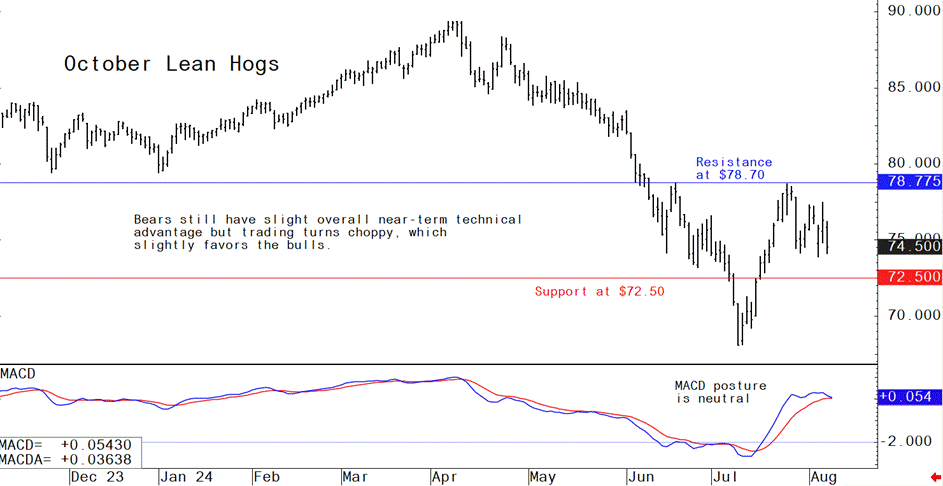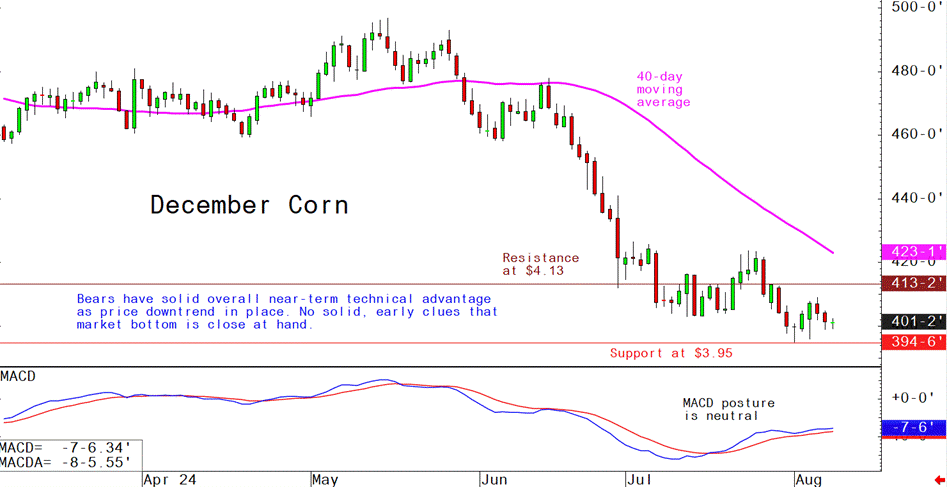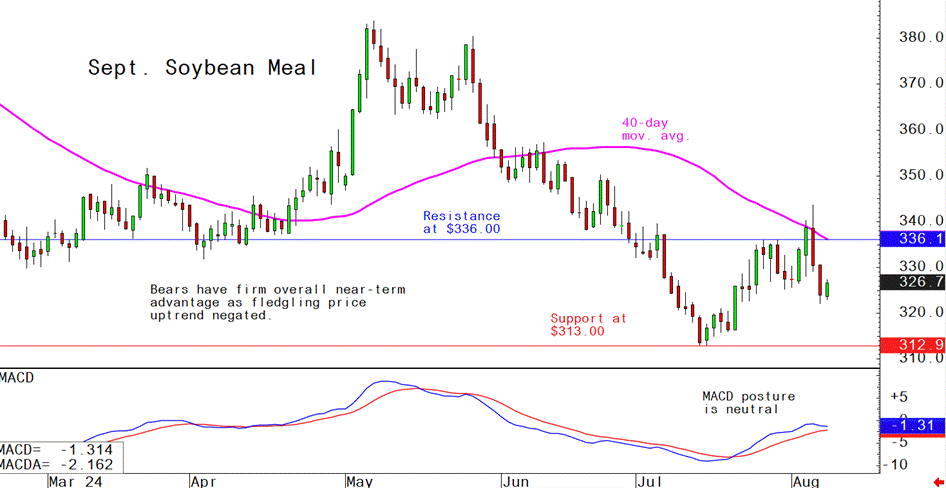



Pig outlook: Lean hog futures bulls holding their own
Livestock analyst Jim Wyckoff reports on global pig newsIn a tough, risk-averse trading week for ag market bulls, the lean hog futures market did not perform too badly—especially amid the steep sell off in the cattle futures markets recently. Still, cash hog fundamentals are weakening. The latest CME lean hog index is down 23 cents to $93.10 as of Aug. 6, the third straight daily decline. The pork cutout dropped $1.99 on Wednesday to $100.32, led by a $7.62 drop in primal bellies, though all cuts except hams declined.
Hog futures traders remain pessimistic about the outlook for lean hog futures, as seen by the discounts in deferred hog futures through the winter months. US consumers have accelerated their bacon purchases for BLT season, as implied by the belly market strength over the last month.
Weekly USDA US pork export sales
Pork: Net US sales of 34,600 MT for 2024 were up 10 percent from the previous week and 24 percent from the prior 4-week average. Increases were primarily for Mexico (14,800 MT, including decreases of 400 MT), China (7,400 MT), Japan (2,900 MT, including decreases of 400 MT), Colombia (2,500 MT, including decreases of 100 MT), and Canada (1,700 MT, including decreases of 600 MT). Total net sales of 200 MT for 2025 were for New Zealand. Exports of 33,200 MT were up 10 percent from the previous week and 4 percent from the prior 4-week average. The destinations were primarily to Mexico (14,400 MT), Japan (4,700 MT), China (3,100 MT), South Korea (2,700 MT), and Colombia (2,500 MT).
China’s July meat imports drop sharply from year-ago
China imported 540,000 MT of meat during July, up 25,000 MT (4.9%) from June but down 125,000 MT (18.8%) from last year. Through the first seven months of 2024, China imported 3.835 MMT of meat, down 14.5% from the same period last year.
China halts imports of meat and meat products from Swift Beef plant
The plant is in Grand Island, Nebraska--Lineage Logistics cold storage facilities in Grand Island, Nebraska, and Windsor, Colorado, effective July 30. This marks the second Swift Beef facility banned by China, following a May 27 suspension of imports from the Swift plant in Greeley, Colorado.
No reason was given for the suspension, but some reports signal the primary reason for these suspensions may have been the detection of ractopamine, a feed additive used to promote leanness and increase weight in livestock. Ractopamine is banned in over 160 countries, including China and the European Union, due to concerns over animal welfare and potential human health risks. In the case of the Greeley, Colorado, plant, U.S. officials reportedly found traces of ractopamine in meat destined for export to China, leading to the suspension.
The next week’s likely high-low price trading ranges:
October lean hog futures--$72.50 to 79.00 and with a sideways bias
September soybean meal futures--$313.00 to $343.70, and with a sideways-lower bias
December corn futures--$3.85 to $4.15 and a sideways-lower bias
Latest analytical daily charts lean hog, soybean meal and corn futures










